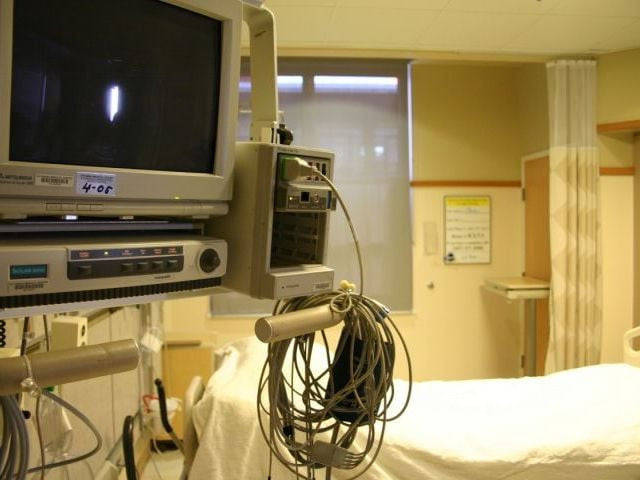World Kidney Day: ‘Common kidney diseases can be avoided’
He said the civil society and healthcare professionals should help the government eradicate kidney diseases

PHOTO: FILE
A banner hung at the main gate of Mayo Hospital reads, “Kidneys have no vacations.” 48-year-old Ali Ahmed stands near it, caught in a long queue for dialysis.
“I come here four days a week but often there is no one to treat me. Quite frequently I’m told to come another time,” he says.
He says on some days, he is refused treatment as all hospitals in the City have only two shifts for dialysis and there are long queues at facilities for the treatment. “The government should start a 24-hour dialysis facility,” he says. “In Pakistan, more than 25 million people suffer from kidney diseases. There is a need for an awareness campaign on prevention of kidney disorders,” says consultant nephrologist Dr Tariq. Talking to The Express Tribune on the occasion of World Kidney Day, March 10, Tariq said unsafe drinking water, unhygienic food, unnecessary use of medicines, environmental pollution, high blood pressure and diabetes were main reasons behind kidney disorders.
He said herbal medicines also affected the kidneys. “People should avoid them,” he said.
“The government has allocated Rs600 million for development of kidney wards at districts and tehsil levels” he said. He said kidney diseases were very common and hospitals were overburdened because of them.“The problem is not unavailability of dialysis machines but the irresponsible attitude of the government,” says Dr Qazi Yasir of Mayo Hospital.
He says kidney disorders were a very common issue. “I don’t know why the government cannot start 24-hour dialysis units in all hospitals” he said. “It is unfortunate while walks and seminars are organised to mark World Kidney Day, poor patients stand in queue despite availability of dialysis machines,” Yasir said.
Health Department spokesman Akhlaq Ali Khan says in most public hospitals dialysis machines were operated on two shifts to keep machines in working order.
He said the civil society and healthcare professionals should help the government eradicate kidney diseases.
Published in The Express Tribune, March 10th, 2016.



















COMMENTS
Comments are moderated and generally will be posted if they are on-topic and not abusive.
For more information, please see our Comments FAQ